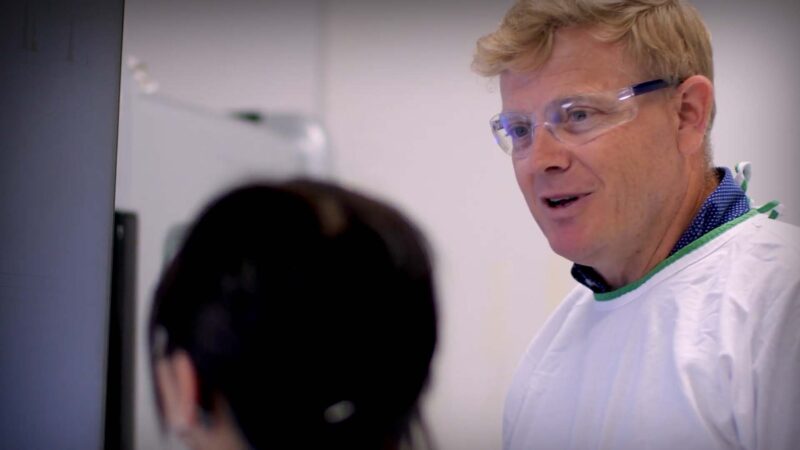TYROSINE KINASES IN CANCER RECURRENCE
With
Dr Yu Yu
Program Lead, Curtin Medical Research Institute &
Senior Research Fellow, Curtin Medical School,
Curtin University, Perth, Western Australia
RESEARCHER PROFILE
Filmed in Perth, Australia | July 2025
Dr Yu Yu completed her PhD at Faculty of Medicine, University of Sydney in experimental therapeutics for cancer. She then pursued postdoctoral training at the Richard W. TeLinde Gynecologic Pathology Laboratory, Johns Hopkins University School of Medicine, USA with a focus on understanding the treatment for recurrent ovarian tumour.
Dr Yu Yu leads the Oncology and Gynaecology Research Program at Curtin Medical Research Institute . Dr Yu is also a senior research fellow at Curtin Medical School.
Dr Yu Yu has a strong expertise in developing molecular and cellular therapeutics for cancer. She is a former NHMRC Peter Doherty Fellow and Raine/Robson Fellow. Her studies focused on recurrent cancers, with interests in biomarker and therapeutics development.
Ovarian cancer is one of the deadliest gynaecologic cancers. There are ~300,000 new cases of ovarian cancer worldwide each year. Less than half of women diagnosed survive 5-years after diagnosis. Platinum-based chemotherapy is used to treat ovarian cancers and a variety of other solid cancers. The National Cancer Institute reports 20% of cancer patients worldwide (3.6 million people) receive a platinum-based drug as part of treatment. However, ~20-50% do not respond because of intrinsic resistance. Currently, there is no way to predict response prior to starting platinum chemotherapy.
Dr Yu Yu’s laboratory is working on better ways to treat cancers, particularly ovarian cancers which are resistant to conventional chemotherapy. The aims are for better informed treatment choice and reducing unnecessary exposure to ineffective chemotherapy and its potential adverse effects.
Collaboration partners include St John of God Hospital and King Edward Memorial Hospital, both in Western Australia. Funding for Dr Yu Yu’s research comes from WA Department of Health’s Future Health and Innovation Research Fund, Raine Medical Research Foundation and Endometriosis Foundation of America.
Source: Supplied and adapted
You Might also like
-
Mechanisms of resistance to menin inhibitor therapy and Acute Myeloid Leukaemia
Dr Rithin Nedumannil (MBBS, MPH, FRACP, FRCPA) is a PhD candidate at the University of Melbourne, undertaking his doctoral studies in collaboration with the Cambridge Stem Cell Institute (Cambridge, UK) and the Peter MacCallum Cancer Centre (Melbourne, Australia). He is a clinical haematologist and haematopathologist with current appointments at Peter MacCallum Cancer Centre, the Royal Melbourne Hospital, Austin Health and Northern Health.
-
Better biomarkers for predicting the incidence of having atherosclerosis and heart attack
Assoc Prof Bursill is a vascular biologist with interests and expertise in vascular inflammation, atherosclerosis and angiogenesis. She completed her PhD at The University of Adelaide in lipid metabolism then headed to Oxford University for five years to undergo a postdoctoral post in the Departments of Cardiovascular Medicine and Pathology. Her postdoctoral time triggered her interest in the mechanisms that cause atherosclerosis and in particular the role of small inflammatory proteins called chemokines.
-
Next generation nanomedicine and radiopharmaceuticals to treat cancer
Finding better ways of treating cancer, aside from finding a cure, aim to provide a better quality of life for those who suffer from it.
Professor Thurecht’s work focuses on nanomedicine and spans across the Australian Institute for Bioengineering and Nanotechnology and the Centre for Advanced Imaging, at the University of Queensland in Australia.

 https://orcid.org/0000-0002-0209-0586
https://orcid.org/0000-0002-0209-0586


